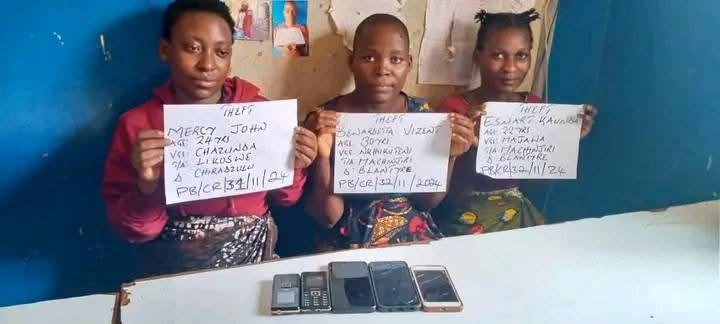By Burnett Munthali
Another person’s misfortune must never be mistaken for your own security because you do not know whose turn tomorrow may be.
What has happened in Area 25 can happen anywhere and it should teach us how to conduct ourselves in daily life.
We must teach one another these practical safety disciplines.
If you finish work or business very late do not board a car or motorcycle belonging to someone you do not know.
Keep the phone numbers of trusted taxi or kabaza (motorcycle taxi) operators so they can pick you when you knock off late.
Be aware that criminals can also pose as taxi or kabaza operators.
When you go out drinking do not flash all your money in public just to look important.
Do not discuss politics loudly in bars or social spots because you do not know who is sitting near you.
If you lose self‑control when you are drunk it is wiser to buy the alcohol and drink it at home.
When leaving home tell the person you live with where you are going.
When you arrive at your destination inform that person you have arrived safely.
You can discreetly take a photo of the place and send it so they know your exact location.
If you are walking at night do not switch on your phone torch continuously.
Avoid wearing headsets while walking in the dark.
A bright torch narrows your vision and distracts situational awareness.
Headsets block out ambient sounds that could warn you of danger.
When walking do not choose isolated shortcuts simply to arrive faster.
Choose wider, well‑used routes where if something happens people can quickly recognise you and intervene.
Accept arriving late if it means arriving alive.
If a stranger appears to pace themselves with you do not allow them to stay just in front or side by side.
Walk in a way that keeps distance because many attackers study victims from a short distance before striking in secluded spots.
Do not overshare good things happening at your work, business, or in your family.
Understand that blessings you enjoy may not be happening for your friends and telling everything can trigger envy.
Jealousy can evolve into plotting harm.
Learn to act quietly and let people see only the results of your success.
Let your most trustworthy friend be yourself.
Do not assume everyone deserves your full trust.
If you receive a late‑night call to meet a “friend” make sure you go with another trusted person.
Do not agree to meet in hidden or unfamiliar places.
Many attacks now originate from people we casually count as friends.
Your friend knows your routines.
Your friend knows your weaknesses.
Your friend knows what you like.
That familiarity can make it easier for them to set you up.
So let your primary trusted person be yourself first.
If you have gone to work focus and work until knock‑off time.
When you finish for the day go home and spend time with your family.
No one can build your personal goals if you surrender your time to their distractions.
Keep emergency contact numbers for your neighbours readily accessible.
Agree with neighbours that if they see a rapid flash of light at night it signals alert so they can wake immediately.
Such neighbour protocols can help apprehend or deter intruders.
Learn to sleep while at least partially clothed because night incidents are unpredictable.
Do not place absolute reliance on the police for your immediate safety.
Police officers are also human and may seek to secure their own personal safety before they can protect you.
Your first layer of security is yourself not the police.
Let us all share this message to help safeguard the lives of our brothers and sisters.
Before beginning each day pray for protection from God.
Let your daily plans be guided by God.
Pray for success in your movements.
Pray for safety in your activities.
Pray for favour wherever you go.
Community vigilance combined with faith, discretion, and disciplined habits can reduce preventable harm.
Personal responsibility is the strongest early shield against opportunistic crime.
Collective awareness multiplies that shield for the whole neighbourhood.
Area 25’s experience should therefore trigger sustained behavioural change rather than a passing reaction.
Our safety tomorrow depends on the quiet decisions we make today.
Let us choose wisely, act cautiously, and live responsibly.





